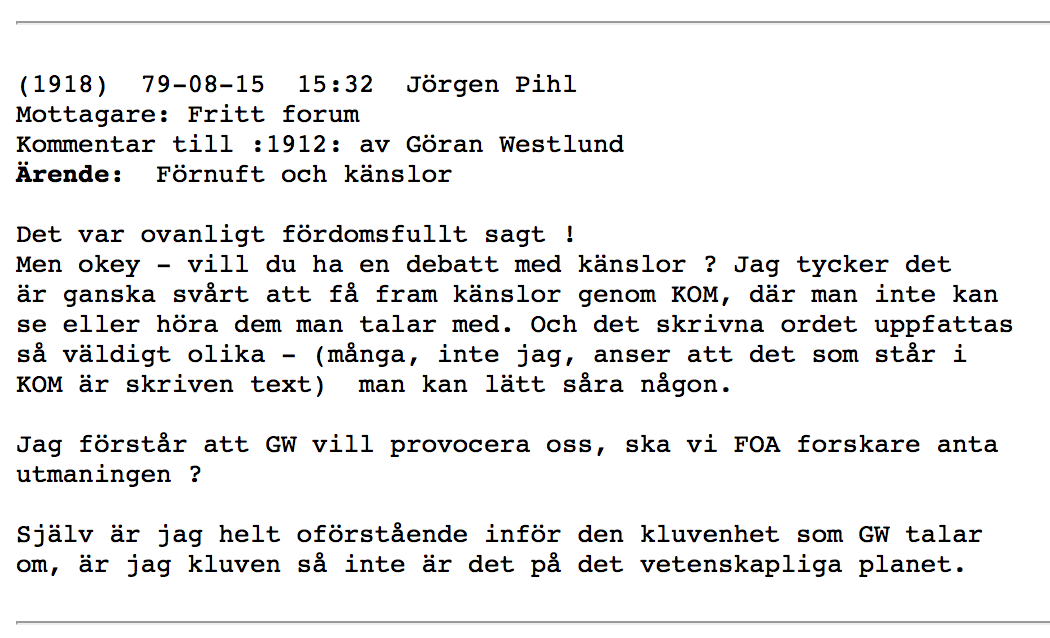A Swedish social network is started – the revolutionary KOM system.
In 1978 hundreds of Swedes, both scientists and private individuals, can connect to a computer for the first time and write to each other in so-called "meetings". The KOM system, an early social network, is born.
The KOM system is not the first, but is meant to build upon the American system Forum Planet (read more about Murray Turoff's revolutionary system here). But it doesn't work out, so project manager Jacob Palme and programmer Torgny Tholerus decide to develop their own take.
This is done on commission by the Swedish Defence Research Agency. KOM is meant to enable internal communications when one department moves to another part of the country, but it quickly becomes more of a social hub for people interested in computers, where everything from computer standards to equality and nuclear power is discussed.
The KOM system is connected to the Arpanet
In 1982 the KOM system connects to the Arpanet (which later becomes the internet), and this means Swedish users can now join debates on American mailing lists. But this doesn't mean full access to the network.
The system reaches notoriety through a scandal. KOM user and scientist Eskil Block claims in a post that the director Maj Wechselmann is a Soviet spy. When she finds out about this in a roundabout way she sues Eskil Block, who is later convicted of slander. When the system reaches its pinnacle in 1987 it has about 2.000 users.
The web defeats the KOM system
During the early 1990's, two versions of KOM are developed. First there's SuperKOM and later KOM95, with a graphical user interface. But by then the system is old. The World Wide Web has made its triumphant entry on the internet.
Torgny Tholerus, who developed and maintained the KOM system, is still pleased with how things turned out.
– I've never been interested in making money. I want to make the world a better place by enabling communication between people. That's why I'm just happy that Facebook has taken over. When I started working, communication only happened in small groups, like within the family or the workplace. Now we can talk with the whole world.
See our long interview with Torgny Tholerus (in Swedish only), who developed and maintained the KOM system, below.
See our long interview with Jacob Palme (in Swedish only) below:



